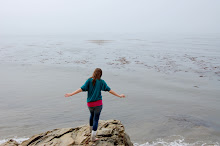"The spacecraft was a long way from home. I thought it might be a good idea, just after Saturn, to have them take one last glance homeward. From Saturn, the Earth would appear too small for Voyager to make out any detail. Our planet would just be a point of light, a lonely pixel, hardly distinguishable from the many other points of light Voyager would see: nearby planets, far-off suns.
But precisely because of the obscurity of our planet thus revealed, such a picture might be worth having. It had been long understood by the scientists and the philosophers of classical antiquity that the Earth was a mere point in a vast, encompassing cosmos. But no one had ever seen it as such. Here was our first chance, and perhaps also our last for decades to come.
So here they are: a mosaic of squares laid down on top of the planets in a background smattering of more distant stars. Because of the reflection of sunlight off the spacecraft, the Earth seems to be sitting in a beam of light, as if there was some special significance to this small world, but it's just an accident of geometry and optics. There is no sign of humans in this picture - not our reworking of the Earth's surface, not our machines, not ourselves. From this vantage point, our obsession with nationalism is nowhere in evidence - we are too small. On the scale of worlds, humans are inconsequential, a thing filled with life on an obscure and solitary lump of rock and metal.
Consider again that dot. That's here. That's home. That's us. On it everyone you love, everyone you know, everyone you ever heard of, every human being who ever was, lived out their lives. The aggregate of our joy and suffering, thousands of confident religions, ideologies, and economic doctrines, every hunter and forager, every hero and coward, every creator and destroyer of civilization, every king and peasant, every young couple in love, every mother and father, hopeful child, inventor and explorer, every teacher of morals, every corrupt politician, every supreme leader, every "superstar," every saint and sinner in the history of our species lived there--on a mote of dust suspended in a sunbeam.
The Earth is a very small stage in a vast cosmic arena. Think of the endless cruelties visited by the inhabitants of one corner of this pixel on the scarcely distinguishable inhabitants of some other corner, how frequent their misunderstandings, how eager they are to kill one another, how fervent their hatreds. Think of the rivers of blood spilled by all those generals and emperors so that, in glory and triumph, they could become the momentary masters of a fraction of a dot.
Our posturings, our imagined self-importance, the delusion that we have some privileged position in the Universe, are challenged by this point of pale light. Our planet is a lonely speck in the great enveloping cosmic dark. In our obscurity, in all this vastness, there is no hint that help will come from elsewhere to save us from ourselves.
Like it or not, for the moment the Earth is where we make our stand.
It has been said that astronomy is a humbling and character-building experience. There is perhaps no better demonstration of the folly of human conceits than this distant image of our tiny world. It underscores our responsibility to deal more kindly with one another, and to preserve and cherish the only home we've ever known. The pale blue dot."
-Carl Sagan
Subscribe to:
Post Comments (Atom)

No comments:
Post a Comment